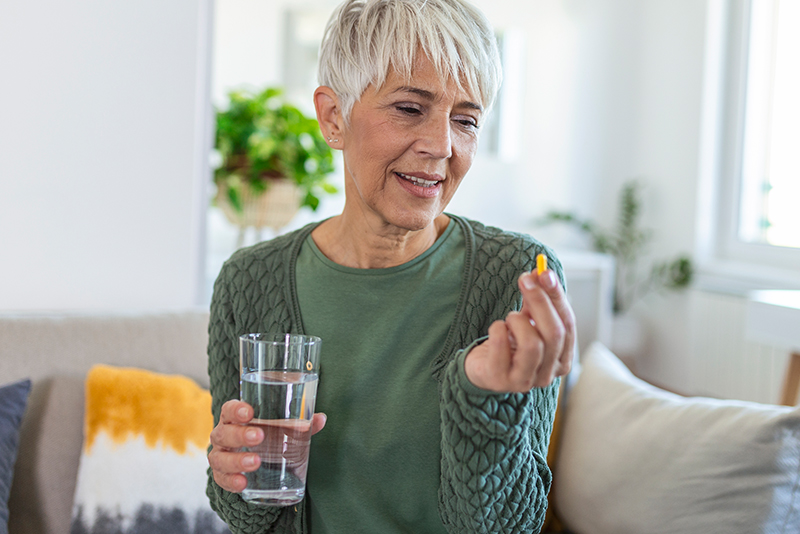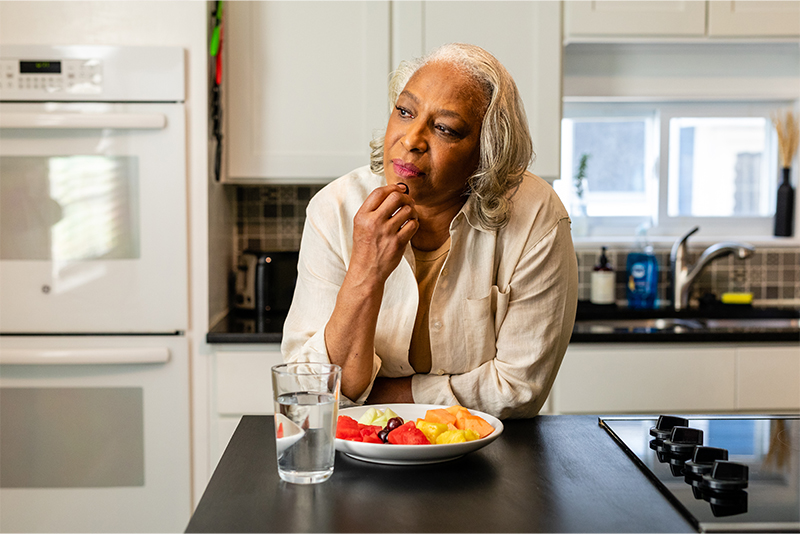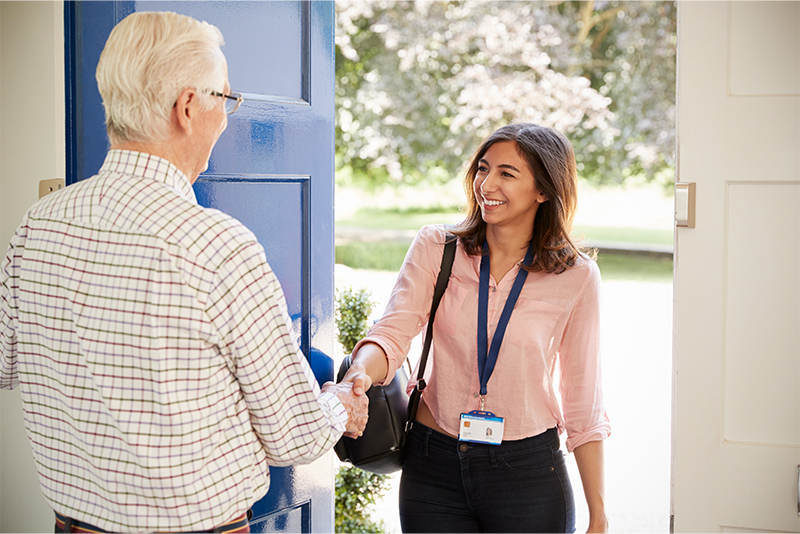The Most Important Vitamins for Older Adults


With all of the options on store shelves, which are the most important vitamins for older adults?
Minerals, vitamins, and supplements – oh my! Nearly three in four older adults are taking them; but are they really needed as we get older? After all, a balanced and healthy diet offers older adults essential nutrients. But there are specific areas of deficiency that may make a case for the addition of a supplement. Make sure to talk with the doctor before making any changes, but with their recommendation or approval, consider the following important vitamins for older adults:
Calcium
Aging bones are susceptible to breaks and fractures when calcium intake is inadequate. This is especially true for post-menopausal women, with a full 50% of those over age 50 breaking a bone because of osteoporosis. However, men are also in danger for serious complications from calcium deficiency. A hip fracture in men, for example, is much more likely to be fatal than it is for women.
The very best natural sources for calcium are salmon, leafy greens, kale, broccoli, and dairy products, but the majority of women over age 50 and men over age 70 are not getting enough calcium from food alone. The NIH’s Office of Dietary Supplements recommends 1,200 mg of calcium per day for women over age 51 and men over age 71, and 1,000 mg daily for men ages 51 – 70.
Vitamin D
Vitamin D is calcium’s closest friend. They work most effectively when taken together to improve not only bone health, but the immune and nervous systems and perhaps the heart as well. Sunshine is the best source for vitamin D, but aging skin and the danger of skin cancer may cause roadblocks to getting satisfactory levels.
Recommendations are 15 mcg/600 IU per day up to age 70, and 20 mcg/800 IU per day for individuals over age 71. If vitamin D supplements are advised by the doctor, they should always be taken with food for optimal absorption.
Vitamin B12
Deficiencies of vitamin B12 are common in older adults, and even more so for people who take certain medicines (particularly gastric acid inhibitors or metformin). Without an adequate amount of vitamin B12, seniors are more at risk of developing anemia, neuropathy or nerve damage, balance problems, depression, poor memory, confusion, and dementia.
The National Institutes of Health recommends 2.4 mcg each day, which may be acquired through a diet rich in clams and fish, liver, meat, poultry, eggs, milk, and fortified cereals. And unlike other vitamins and minerals, even large quantities of vitamin B12 have not been shown to cause harm, in accordance with the NIH.
Unsure which dietary supplements are ideal for someone you love? Let one of Hired Hands Homecare’s care providers offer accompaniment and transportation to the doctor’s office to find out. Reach out to us at (866) 940-4343 for additional details on how we can help boost older adult health with professional in-home care services in Novato, Napa, Sonoma, and the surrounding areas.








Leave a Reply